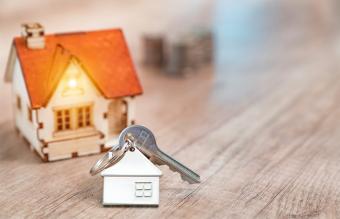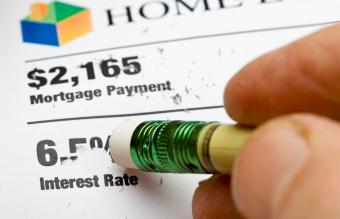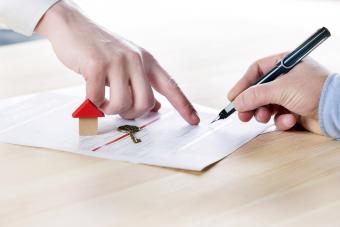
If you are like most homeowners, you're probably trying to figure out various ways to slash your mortgage without putting a huge dent in your quality of life. If you haven't yet made the leap into homeownership, you will want to learn about the various methods for getting the best deal possible on a loan. Read on for valuable tips to slash mortgages, how to pay down your mortgage, and more from Jay Dacey, an experienced Mortgage Planner in the Twin Cities.
Should people choose short or long term amortizations when selecting a mortgage loan?
The longer the amortization the better. This minimizes your payment and allows you to invest the difference into investments. If you aren't disciplined enough to do this, do what Uncle Sam does.
Have an "auto draft" taken out of your paycheck into your investment account just like the government does with taxes. You don't really feel it because it was never there to spend and you can feel a lot better about this because compounding interest turns those dollars into thousands of dollars before you know it.
Which loan is preferable: A fixed rate or an adjustable rate?
Decide how long you will need the money for and match the fixed period of the loan to that time.
For instance, if you plan on moving in 3 years get a 3/1 Arm. If you know you will do a major addition in 5 years and need to pull out equity to fund the addition, get a 5 year arm.
If, and only if, you plan on being in the home for a very long time and have no plans to utilize your home equity, then go for the 30 year fixed.
If you opt for the 30 year fixed know you will be paying more in interest and less towards principal than with an ARM. The average mortgage is paid off in 4.3 years because people refinance or move so the fixed rate rarely makes the most financial sense.
With that being said, having a 30 year fixed gives some people peace of mind. It's like having an insurance policy you will most likely never need but it can be nice to have in case the unexpected happens and you're in the home for 30 years.
How can people slash their mortgage?
If it works with your pay schedule, most lenders offer bi-weekly plans that shave between 5 and 7 years off your loan. These programs seem like a great deal on the surface because it seems like you're getting out of debt faster.
In reality, you are sending in extra money which you can do on your own. This can be very harmful to a person with no savings because if you lose your job or something major happens, the bank won't just give you that money back.
If you do have extra money in your budget to pay off your mortgage, funnel it into a conservative investment account instead and when the balance is sufficient, you can pay off your mortgage or better yet, let it compound and use investment income to pay down your mortgage.
Because investments compound and are often tax preferred, you can accumulate assets faster than just paying down debt and reach your goal faster and much safer.
Is it better to make extra payments on a mortgage or attack other debt first?
Before you do either, pay yourself first. Get a minimum of 3 months living expenses in savings and then evaluate paying down debts.
Conventional thinking says to pay off the debt with the highest rate first. Keep in mind credit bureaus don't like to see any revolving accounts with balances greater than 30% of the limit.
If you are maxed out on a 0% teaser rate credit card and have no balance on the higher rate card, it may cost you more in the long run if your credit drops below 680 because you'll pay a higher rate on your mortgage. There's an old saying, don't trip over nickels to pick up pennies.
If possible, consolidate debt with a home equity line of credit to take advantage of lower rates and potential tax deductions. If this isn't possible, starting with the highest rate, get it paid down to 30% of limit and repeat until all revolving debts are at 30% or under and then attack the high rate ones.
Can refinancing help borrowers pay off their mortgage faster?
During the refinance boom of the early 2000's, many people consolidated their 30 year mortgage and other debts such as credit cards and auto loans into a 15 year mortgage with the same monthly payment. Consolidating debts often make sense but you need to ask yourself if you can afford a shorter term loan versus the 30 year fixed. If you refinance, make sure you are doing it for the right reason.
What common mistakes do people make when trying to pay off their mortgages quickly?
Not having a backup plan if "life happens" and they need cash. The problem with having a lot of home equity is you become the easiest to foreclose on. Let's look at an example:
Borrower A and B are neighbors and their homes are each worth 200,000. Borrower A owes 200,000 on his home with 50,000 in cash while borrower B only owes 150,000 on his home but has no cash.
If both A and B lose their jobs, borrower A can afford to make payments while borrower B will not be able to access his equity and will likely lose the house.
Why should people make an attempt at slashing their mortgages down?
Unfortunately, many people have confused being debt free with being rich. Your focus should be on building up assets which produce an income allowing you to make your mortgage payment during retirement. Even without a mortgage payment, you will have a house payment because of taxes, insurance and utilities.







